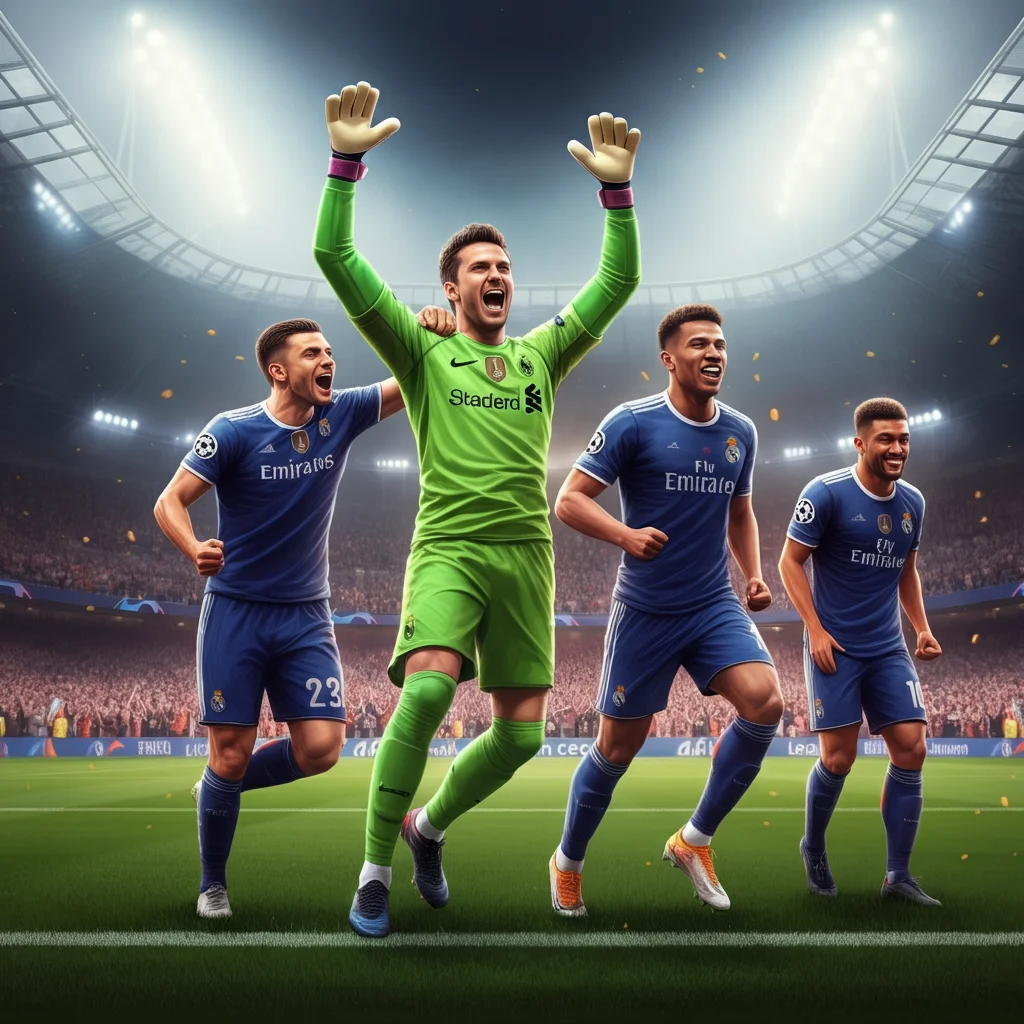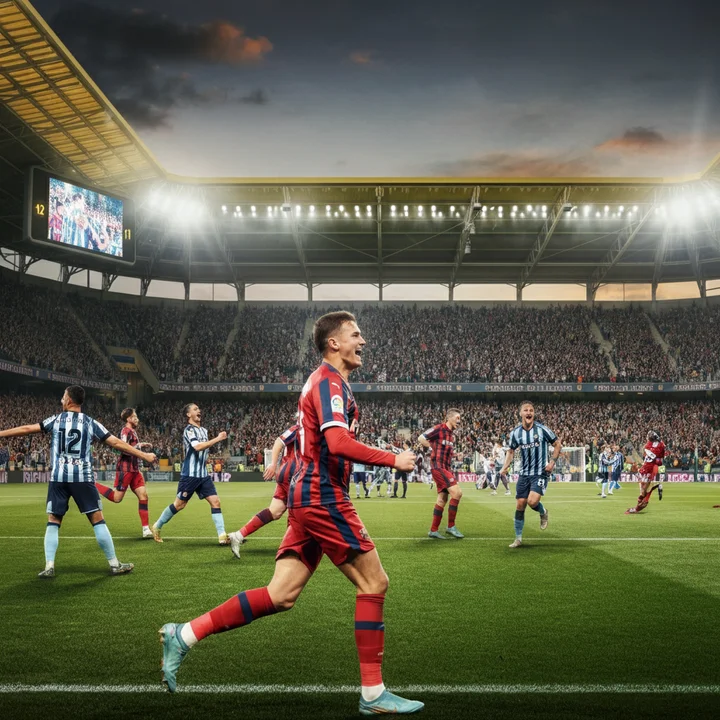Paris Saint-Germain’s (PSG) thrilling victory over Arsenal in the Champions League semi-final was not just about individual brilliance but a testament to their growing tactical cohesion and squad depth. From Gianluigi Donnarumma’s spellbinding performance between the posts to João Neves’ midfield dominance, every element of PSG’s strategy came together to showcase why they are now a force to be reckoned with in European football.
This blog takes a closer look at how PSG tactically outclassed Arsenal, the key players who made the difference, and what this means for their ambitions moving forward.
How PSG Set the Stage for Success
When the semi-final match began, the stakes couldn’t have been higher. Arsenal had been in scintillating form throughout the tournament, lauded for their pressing strategy and fluid attacking play. But, PSG came into this game clearly prepared for the North London side’s strengths.
Head Coach Luís Enrique executed a tactical plan that not only neutralized Arsenal’s most potent threats but also exposed their vulnerabilities.
High-Pressing Arsenal, Meet Controlled PSG
While Arsenal’s high-press strategy has overwhelmed many teams this season, PSG countered it with precision and calmness. Instead of panicking under pressure, key defenders like Marquinhos and Milan Škriniar demonstrated remarkable composure, effortlessly playing out from the back and maintaining possession under pressure.
The midfield trio, spearheaded by João Neves, became the fulcrum of PSG’s game plan. Neves’ ability to pick out incisive passes and switch play created pockets of space that Arsenal’s pressing midfielders struggled to close down. This smart ball circulation forced Arsenal to chase the game, tiring them out over 90 minutes.
Tactical Flexibility
PSG’s tactical flexibility was crucial in this game. The team fluidly transitioned between defensive solidity and attacking sharpness depending on the game’s tempo. Luís Enrique implemented a hybrid 4-3-3 formation that morphed into a 4-2-3-1 during counterattacks.
Hugo Ekitike played as a false nine, creating space for Kylian Mbappé and Ousmane Dembélé to wreak havoc on the flanks. When Arsenal tried to overload the midfield in the second half, PSG adjusted their structure, allowing full-backs Achraf Hakimi and Nuno Mendes to push higher and create width.
The result? Arsenal struggled to maintain positional discipline, and PSG capitalized by stringing dangerous passes that sliced through their defense.
Key Players Who Stole the Show
While this victory was undoubtedly a collective effort, a few individual performances stood out and provided the foundation for PSG’s success.
Gianluigi Donnarumma - A Wall Between the Posts
Few goalkeepers in the world can influence a game the way Gianluigi Donnarumma did in this semi-final. The Italian shot-stopper was in imperious form, making crucial saves to keep PSG ahead. His reflex save to deny Bukayo Saka’s close-range strike in the 28th minute was nothing short of breathtaking.
What set Donnarumma apart wasn’t just the number of saves but their timing. On multiple occasions, Arsenal seemed poised to level the game, but Donnarumma’s heroics crushed any hopes they had of turning the tide. His commanding presence in the box also added confidence to the PSG backline, allowing them to focus on their marking and positioning.
João Neves - Midfield Maestro
If PSG’s victory were a symphony, João Neves would undoubtedly be its conductor. The Portuguese star’s midfield mastery was on full display, as he dictated the pace of the game with extraordinary composure.
Neves showcased both defensive grit and creative flair, ending the match with the most completed passes and interceptions. His ability to shield the backline while launching key attacks epitomized PSG’s tactical maturity.
Neves’ performance was perfectly encapsulated by his assist for Mbappé’s goal in the 56th minute. Spotting Mbappé’s run behind Arsenal’s defense, Neves delivered a sublime through ball that left defenders scrambling and allowed the French forward to slot home a clinical finish.
Lessons in PSG’s Evolution
This victory is a testament to PSG’s transformation under Luís Enrique. For a club often criticized for falling short in Europe despite their star-studded lineup, this result signifies a shift. It’s no longer just about individual brilliance or marquee signings; it’s about building a cohesive system that works as a unit.
Squad Depth
One of PSG’s standout features this season is their squad depth. When injuries forced players like Marco Verratti and Presnel Kimpembe to miss out, Enrique had substitutes who could step in without compromising the team’s quality. This depth was crucial in maintaining high-performance levels across all competitions.
Tactical Refinement
Gone are the days when PSG relied solely on their attackers to win games. Under Luís Enrique, the Parisian giants have become a tactically astute side capable of adapting to different opponents. Their ability to press intelligently, counter efficiently, and exploit spaces reflects a team that has moved beyond its reliance on superstars.
Winning Mentality
Perhaps the most significant improvement has been PSG’s hunger to prove themselves in Europe. This team no longer crumbles under pressure in high-stakes games. Instead, they face challenges head-on, with confidence and self-belief that make them a formidable opponent.
What This Means Moving Forward
With this win, PSG has set their sights on the Champions League final, where they’ll face off against either Bayern Munich or Real Madrid. Both teams are giants of European football, but this PSG side has shown they have what it takes to beat the best.
For Arsenal, the heartbreak of this loss will undoubtedly sting. However, their young squad is brimming with potential, and their performance throughout the competition suggests they’ll be back stronger next season.
For now, all eyes are on PSG as they march toward their ultimate goal of Champions League glory. If this semi-final performance is anything to go by, the Parisian club is ready to etch its name in European football history.



